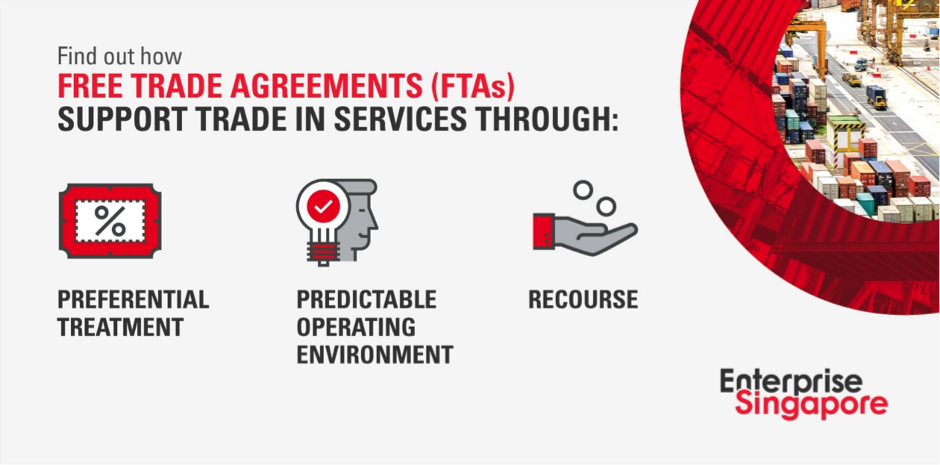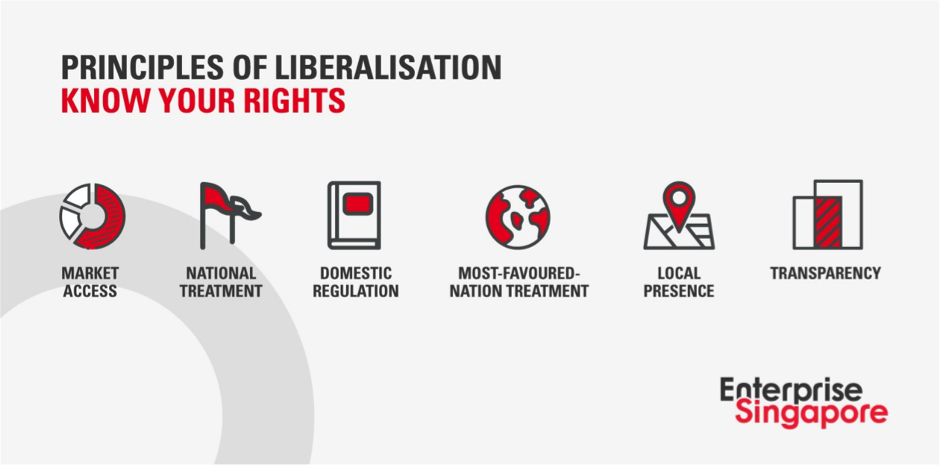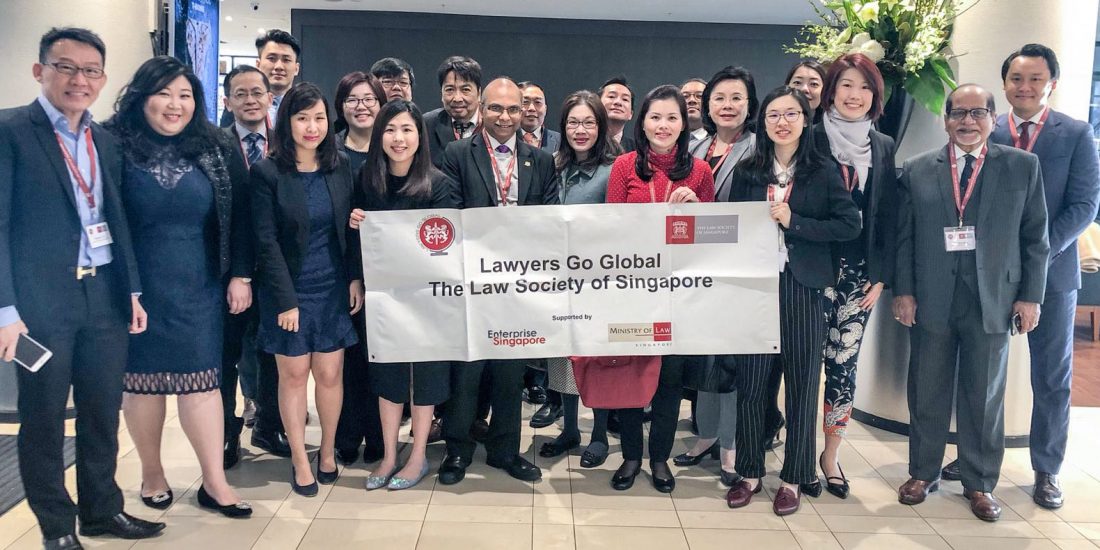
Lawyers Go Global – Free Trade Agreements and the Export of Legal Services
How Free Trade Agreements (FTAs) safeguard market access and create a more predictable operating environment
Singapore is a small, open economy with trade flows more than three times our Gross Domestic Product. In 2017, Singapore’s export of services grew to an all-time high of S$227 billion, with legal services amounting to $867 million.1 Source: Singapore Department of Statistics
As trade wars cause instability to global markets, and rising tariffs and protectionism become trade barriers, firms may approach internationalisation with greater caution. Against the backdrop of a volatile and uncertain economic environment, Singapore’s FTA network serves as an “insurance policy” to provide legal certainty and stability for our firms engaged in services trade. Opportunities remain aplenty for Singapore, especially through our network of 23 trade agreements with 34 trading partners.
One of the common misconceptions of FTAs is that it only covers trade in goods and tariff concessions. However, FTAs provide qualitative benefits for trade in services which apply to the legal sector as well. These benefits include providing FTA partners with preferential treatment, a predictable operating environment and recourse.
 Image 1: How FTAs Support Trade in Services – www.enterprisesg.gov.sg/fta
Image 1: How FTAs Support Trade in Services – www.enterprisesg.gov.sg/fta
Trade in Services is covered in three main ways:
Preferential Treatment: Singapore service suppliers enjoy preferential trade commitments from our FTA partners.
Predictable Operating Environment: Services commitments in FTAs lock in a certain minimum level of market access for our service suppliers.
Recourse: FTAs provide an opportunity for service suppliers to seek recourse should a trading partner choose to contravene its FTA commitments.

Image 2: Know your rights
There are six key rights which are protected via our FTAs:
| Principle of Liberalisation | What it Means |
| Market Access | FTA partners are obliged to remove/reduce market access restrictions on:
a. Number of service suppliers |
| National Treatment | FTA partners are obliged to accord treatment no less favourable than accorded to their own like services and service suppliers. |
| Domestic Regulation | FTA partners are obliged to ensure that general measures affecting trade in services are administered in a reasonable, objective and impartial manner. |
| Most-Favoured-Nation Treatment | FTA partners are obliged to grant each other treatment no less favourable than what they grant to any other trading partner. |
| Local Presence | FTA partners are obliged to allow for the cross-border supply of a service without requiring local presence. |
| Transparency | FTA partners are obliged to make known all relevant measures affecting trade in services to each other within a reasonable period of time, including through prompt publication, maintenance of enquiry points, and fair judicial review. |
The Law Society and Enterprise Singapore are keen to support legal firms’ internationalisation efforts. In July 2018, as part of the “Lawyers Go Global” initiative, an overseas mission was organised for Singapore law firms to explore market and partnership opportunities in Australia.
Focus on Australia: Australia’s Legal Services Commitments to Singapore
We share three FTAs with Australia: the (i) Singapore-Australia Free Trade Agreement (SAFTA); (ii) ASEAN-Australia-New Zealand Free Trade Agreement (AANZFTA); and (iii) the Comprehensive and Progressive Agreement for Trans-Pacific Partnership (CPTPP), which is expected to enter into force by 2019.
While the practice of domestic law is traditionally a protected sector, Australia has opened it up to Singapore. Subject to non-discriminatory domestic regulation, Australia has committed not to impose any market access and national treatment restrictions on Singapore law firms and lawyers. This is a key preferential benefit which Australia has offered to Singapore, which goes above and beyond Australia’s World Trade Organisation (WTO) commitments.
Legal advisory and representational services in foreign law and international law, and legal arbitration and conciliation or mediation services are largely open to Singapore law firms and lawyers as well.
Through the SAFTA, Australia has committed to provide temporary entry for intra-corporate transferees and contractual service suppliers, for four years and two years respectively, with the possibility of further extension.
In the CPTPP, Australia proposed an Annex on Professional services which seeks to lower restrictions for transnational legal practice. This includes encouraging relevant professional bodies to consider how foreign lawyers may prepare for and appear in commercial arbitration, conciliation and mediation proceedings; and to accommodate the provision of legal services on a temporary fly-in, fly-out basis.
For legal services companies looking to go global, you can consider tapping into Singapore’s FTA network.
For more information on how Singapore’s FTA network can benefit your firm, visit www.enterprisesg.gov.sg/fta.
Endnotes
| ↑1 | Source: Singapore Department of Statistics |
|---|





